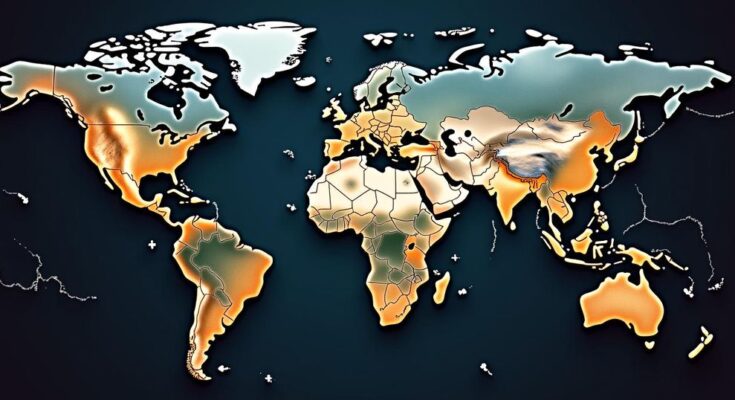South Africa and Brazil have emerged as top five global iGaming markets, surpassing traditional player England. Brazil has 22% online betting engagement, while South Africa leads with 30%. Blask’s AI-driven analysis indicates significant growth dynamics and market volatility, necessitating tailored strategies for operators to capitalize on these burgeoning markets.
The global iGaming landscape is experiencing significant transformations as South Africa and Brazil ascended into the top five markets for online gaming. Blask, recognized for its advanced AI-driven market analytics focused on the iGaming sector, has conducted a comprehensive analysis that reveals the catalysts influencing this shift. In an unexpected development, both nations have surpassed traditional leaders in the industry, as referenced in iGaming Brazil’s article that states, “Brazil leads growth in online betting and surpasses England.” Brazil’s participation rate in online betting has now eclipsed that of England—22% of Brazilians engage in these platforms relative to 19% of users in England. This marks a notable increase from the previous year, where only 15% of Brazilians participated in online betting. Currently, Brazil ranks fifth globally in bookmaker usage, with South Africa leading at an impressive 30% engagement rate. A detailed review of market metrics for South Africa reveals fluctuations throughout 2024, with the Blask Index showing variances in user activity. For instance, January began with 53 million users, peaking at 62 million in September. In terms of effective gross gaming revenue (eGGR), figures remained stable, with averages hovering around $534 million monthly. Conversely, South Africa’s effective first-time depositors (eFTD) demonstrated more variability, showcasing a peak average of 1.9 million in September. Brazilian metrics exhibit more volatility than its South African counterpart, starting with a Blask Index of 169 million in January and reaching a high of 228 million in July. The eGGR for Brazil highlighted higher figures with an average of $9.9 billion in January and various peaks throughout the year. Brazil’s eFTD data also reflected considerable dynamism, with a high average of 6.9 million in July. An in-depth customer profile analysis from Blask underscores significant demographic insights. In South Africa, of approximately 60 million people, 30% engage in online betting—an estimated 18 million players. The predominant age groups are 25 to 34 and 35 to 44. In Brazil, where the population stands at 214 million and 22% participate in iGaming, the two significant age demographics are 18 to 24 and 25 to 34. The insights generated by Blask illuminate the rapid growth of these emerging markets, emphasizing the need for tailored strategies. Operators entering or expanding in South Africa and Brazil should consider demographic characteristics, adapt their offerings for each market, and prepare for the inherent volatility of the Brazilian market. The future trajectory of global iGaming is being significantly determined by the developments within these prominent markets.
The global iGaming industry has witnessed a notable rise in emerging markets, particularly with South Africa and Brazil now regarded as leading players in the sector. As market analytics increasingly emphasize data-driven strategies, understanding the dynamics behind these emerging markets becomes crucial for stakeholders. Blask’s AI-driven analytics provide insights that reveal significant shifts in user behaviors and market engagement, showcasing the necessity for operators to adapt to these evolving landscapes.
The ascendance of South Africa and Brazil to the forefront of the iGaming markets illustrates a critical evolution within the industry. With substantial engagement rates, highlighted by South Africa at 30% and Brazil at 22%, these countries are reshaping the competitive landscape traditionally dominated by established markets. The Blask Index and detailed market analytics indicate that operators must adopt flexible and localized strategies to maximize their success in these vibrant markets. The increasing participation of younger demographics, coupled with varied economic profiles, presents both opportunities and challenges that require astute market awareness and responsive operational frameworks.
Original Source: next.io




